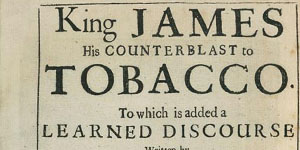
Detail from ‘The Banquet of the Officers of the St George Militia Company in 1627’ by Frans Hals (1627). Wikimedia Commons.
Research Questions
-
A crucial correlate of these economic and social developments was the attitude of local and national governors.
-
One set of questions concerns the role of governance in determining which intoxicants were consumed where, by whom, and at what cost, and also the reaction of governors to changes in production and consumption over time.
-
Another issue, largely unexplored in the historiography, is the role of intoxicants in the development of the early modern state: for example, as a source of revenue (from monopolies and taxes), as a focus for both parliamentary legislation and local ordinances, and as a realm of action (in terms of licensing and policing drinking places).
-
A third set of questions concerns the capacity of interest groups – whether moral agencies or corporate business interests – to influence local and national policy.
-
A fourth concern is the relationship (often noted by contemporaries) between intoxicants and political debate, conflict, and mobilization.
-
And a fifth issue is the perceived relationship, powerful then as now, between intoxication and crime and disorder.
Find our more about this theme and our methodology in our governance blog post…

Sources
We will survey online materials from central government (Books of Statutes and Proclamations, State Papers, Commons and Lords Journals) in combination with local licensing records. The latter are particularly important. An innovation of the early modern period, becoming the primary tool for policing the public retail and consumption of intoxicants, they list the name and parish of the licensee and can be used to analyse the changing topography of legal and illicit public drinking places within communities. Because licensees were also asked to name three sureties the social networks of those involved in the economy of intoxication can be reconstructed. Cross-referencing the names of licensees with the records of parochial, civic and county governance reveals which producers and retailers of intoxicants had direct or indirect access to power.
